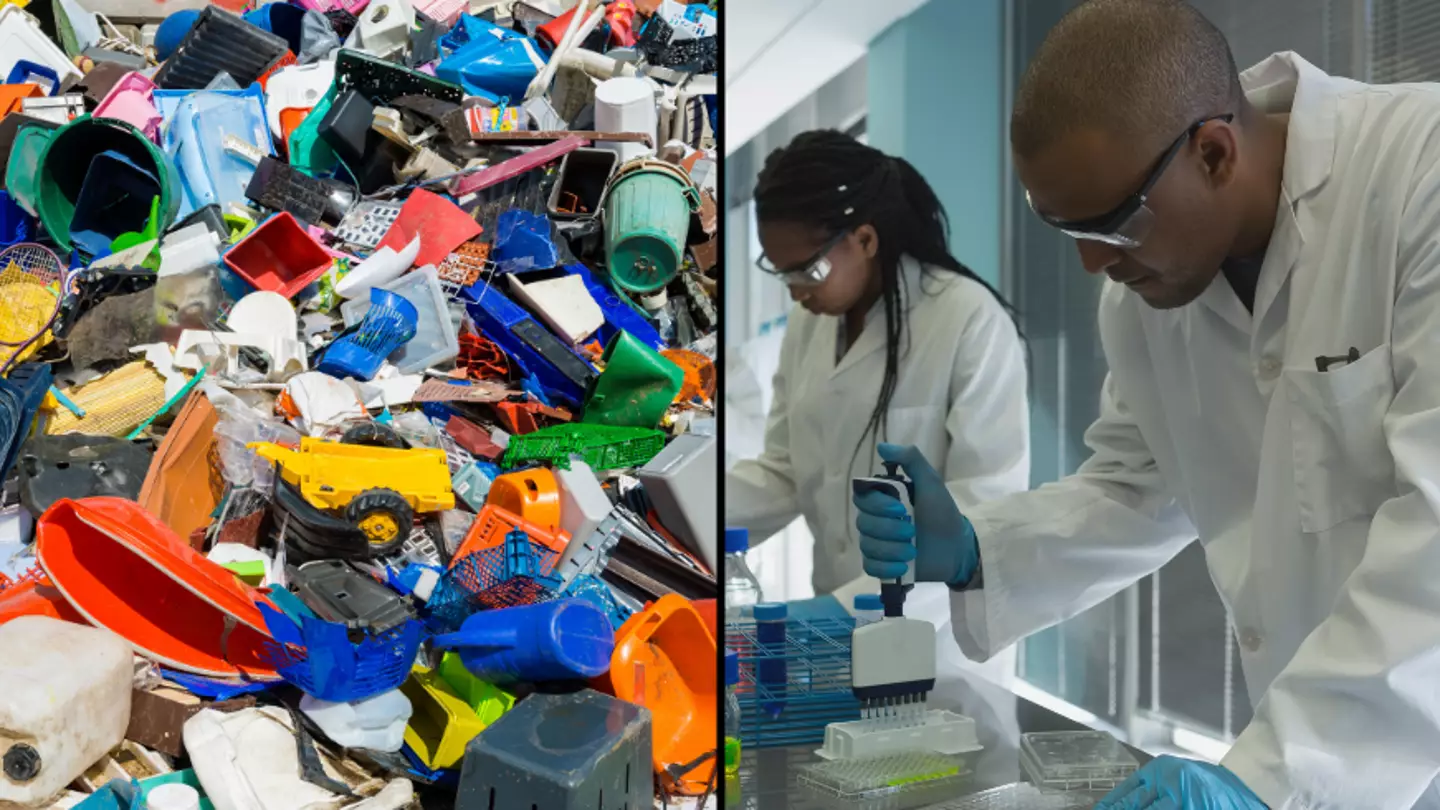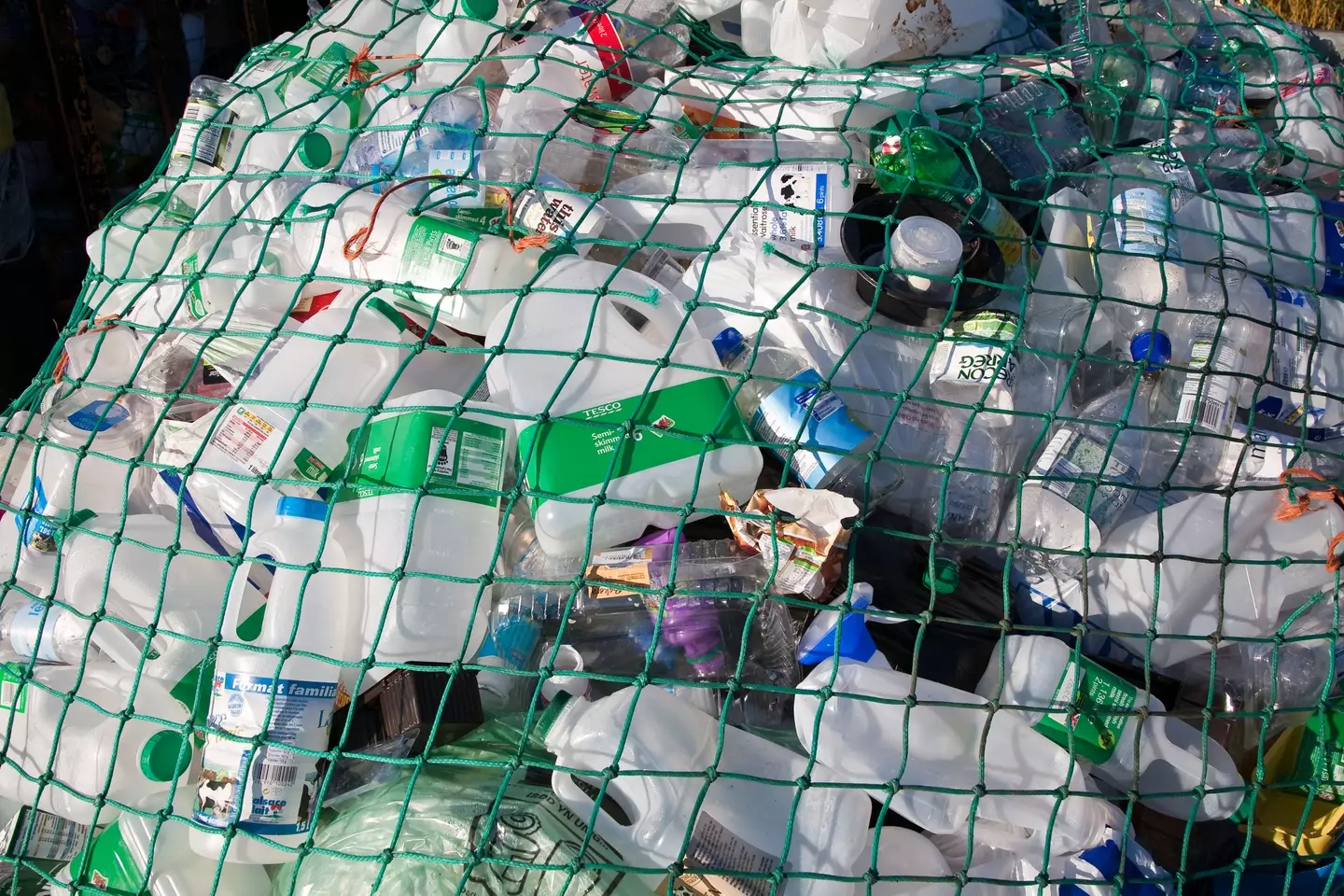
Scientists have created a new way to break down plastics in a matter of days that would otherwise normally take centuries.
The researchers from the University of Texas published their findings in Nature last week, saying they had developed a modified enzyme that can easily degrade plastic.
The scientists used machine learning to create a fast-acting protein that can deteriorate the building blocks of polyethylene terephthalate (PET), a synthetic compound that is commonly found in clothing and plastics.
The process, called depolymerisation, separates building blocks that make up PET into their original monomers and converts them into other products.
Advert

PET accounts for 12 per cent of global waste according to the study, with these enzymes, called FAST PETase, able to break them down in just a week.
The researchers tested their modified enzyme on more than 50 types of plastic containers.
The author of the paper, and Chemical Engineering professor, Hal Alper spoke to VICE’s Motherboard about the process.
Alper said: “Once you have your original monomer, it’s as if you're making fresh plastic from scratch, with the benefit that you don't need to use additional petroleum resources.
Advert
“This has advantages over traditional belt recycling. If you were to melt the plastic and then remould it, you'd start to lose the integrity of the plastic each round that you go through with recycling.
“Versus here, if you're able to depolymerize and then chemically repolymerize, you can be making virgin PET plastic each and every time.”
The scientists landed on their exact structure by using an algorithm that fed 19,000 protein structures to a machine that was taught to predict the positions of amino acids within those structures.
The structure they landed on was able to break down 51 types of PET across a variety of temperatures and pH conditions.
In 2005, there was a discovery of 19 different enzymes that could break down plastics, however, many of them only function well in specific temperatures and conditions.
Advert
They concluded their results by claiming they demonstrated ‘a viable route for enzymatic plastic recycling at the industrial scale.’
Scientists are stepping up their game when it comes to stamping down on plastic waste that is plaguing land and water.
In Europe, an innovation has been rolled out in Amsterdam canals with plans of expansion, called the ‘Great Bubble Barrier’, which uses bubbles to trap plastic waste in rivers.
The technology creates a wall of bubbles by pumping air through a tube on the bottom of the waterway, which then directs plastic towards the surface.
Advert
The barrier is laid diagonally across the river, allowing for the waste to be pushed to the side and into a catchment system as it follows the natural flow of water.
The invention is said to have caught 86 per cent of trash in the canal.
Topics: Good News, Science, Technology